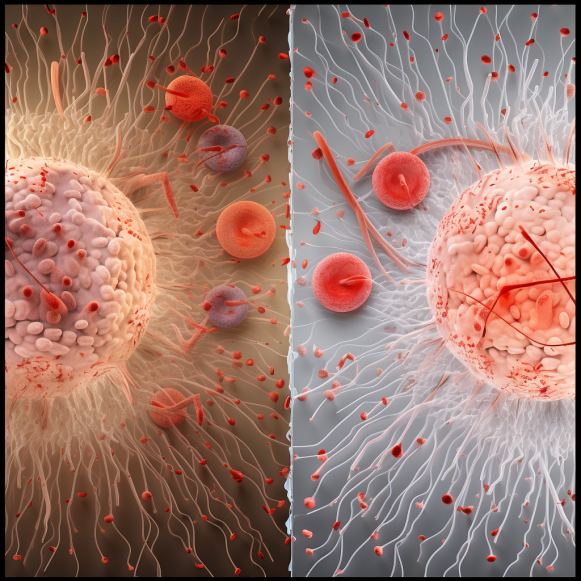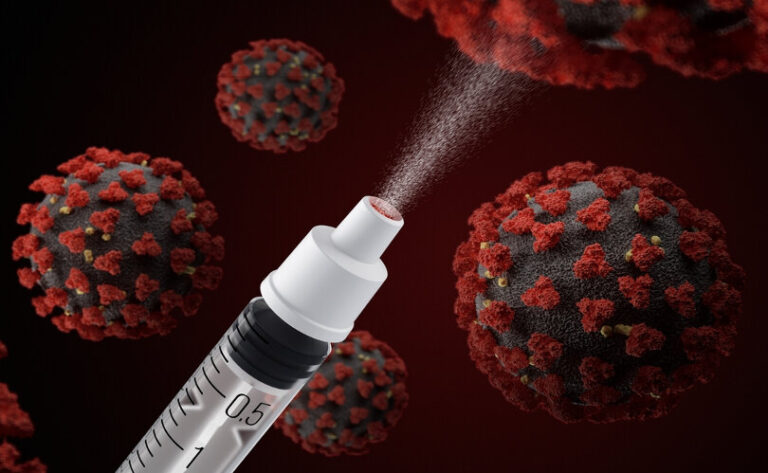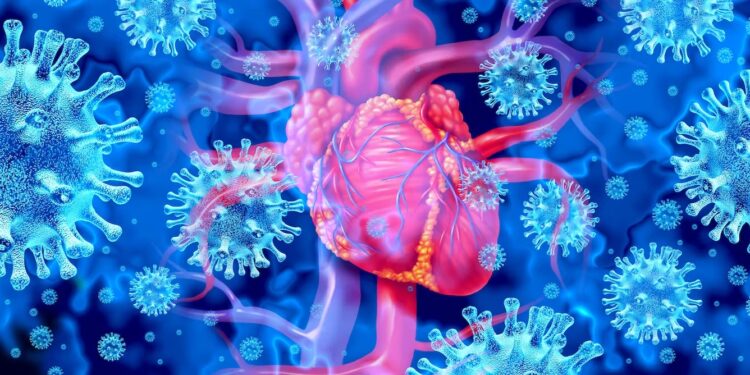mRNA COVID Vaccines Form Spike Protein in Heart Cells, but Cause Different Anomalies: Research Article

New German research observing rat and human heart cells reveals that the COVID-19 mRNA vaccines form spike proteins within 48 hours of vaccination.
Spike proteins, which are produced from the mRNA instructions contained within the vaccines, were found in heart cells. While both the Pfizer and Moderna vaccines caused cell abnormalities, they did so in different ways.
According to Dr. Peter McCullough, a leading internist, cardiologist, and epidemiologist who has published over 1,000 research reports and is the lead author of one of the first widely used treatment regimens for SARS-CoV-2 patients, the cells’ different responses to the two mRNA vaccines suggest an mRNA toxicity reaction in these cells. He went on to say that 48 hours was a short period of time to observe this.
“The findings support both the diagnosis and treatment of cardiac events following mRNA-based COVID vaccination,” the authors wrote, adding that the findings could explain persistent cardiac symptoms in long-term COVID patients.
The paper is a rapid communication paper, which means it is a shorter scientific paper published faster than a traditional research article. Scientists typically use this format when they have findings that need to be shared with the academic community right away.
Not Typical Myocarditis Presentations
The authors of the paper used mRNA vaccinations on cell cultures made from rat and human heart cells.
Moderna and Pfizer vaccines contain different amounts of mRNA, with Moderna containing 100 micrograms compared to Pfizer’s 30 micrograms. As a result, the researchers gave each group 100 micrograms of mRNA.
Researchers detected spike proteins in both cell cultures within 48 hours and observed abnormalities in heart contractions.
In a supplementary video, the researchers recorded heart contractions and compared them to normal contractions in an unvaccinated rat heart cell (1A) and vaccinated cells.
Because of increased protein kinase A (PKA) activity, Pfizer-vaccinated cells showed stronger, longer-lasting contractions (1B). PKA levels are associated with heart performance; the higher the PKA level, the more powerful the heart contractions.
Cells exposed to Moderna developed irregular heart contractions and calcium regulation issues. The authors attributed the change in cell activity to RyR2 receptor disruptions. These receptors are important in coordinating heart contractions with calcium.
Some heart muscles treated with Moderna vaccines experienced irregular and peristaltic contractions (1C and 1D), while others experienced irregular and arrhythmic contractions (1E and 1F).
Spike proteins were also detected in human cell cultures within 48 hours.
The authors concluded that the effects of the COVID-19 vaccines appeared to align more with cardiomyopathy than with myocarditis at the cellular level. In the absence of other heart diseases, cardiomyopathy is a condition in which the heart muscles become structurally and functionally abnormal. Myocarditis and pericarditis, on the other hand, occur when the heart muscles become inflamed and damaged.
Prior research by Dr. James Gill, who conducted autopsies on two boys who died in their sleep after receiving the COVID-19 Pfizer vaccines, concluded that the boys did not have typical myocarditis but rather cardiomyopathy caused by toxic stress.
Myocarditis and pericarditis indicate inflammation and damage to heart muscle cells, but blood and imaging tests may miss signs of damage and inflammation.
“Myocarditis will present with a dilated heart and patients having trouble breathing and heart failure,” Dr. McCullough said in a statement. “We’re not seeing heart failure with vaccines. It’s actually cardiac arrest, which is primarily a problem with electrical [signaling].”
Possible Relationship to Cardiac Arrest
While the study focused on animal cells, the findings strongly suggest vaccine cardiotoxicity.
“The present preclinical cardiac safety data point to the need for a reassessment of the risk-benefit ratio of RNA-based SARS-Cov-2 vaccines, given indication of their cardiotoxicity,” the researchers wrote in their paper.
The heart abnormalities seen in the cells, which were likely caused by RyR2 disruption and increased PKA protein levels, “are risk factors for sudden cardiac death, ventricular tachyarrhythmias, and contractile dysfunction,” the researchers added.
“It’s very concerning,” Dr. McCullough said, noting that disruptions to the RyR2 receptor are directly linked to sudden cardiac death. “The pattern we’re seeing is people take the vaccine, and they die during exercise, or they die between 3 a.m. and 6 a.m.—again, where there’s a surge of catecholamines or stress in the body.”
Why Do Different mRNA Vaccines Cause Different Anomalies?
Dr. McCullough went on to say that the different pathways affected by the two vaccines point to some underlying cell toxicity to the mRNA codes, given that the Moderna and Pfizer vaccines have different mRNA codes but produce the same spike protein.
If the two vaccines elicited a similar response, it could imply that the spike proteins produced by the mRNA instructions were responsible for the majority of the adverse events. However, the fact that the Moderna and Pfizer vaccines cause distinct cardiac abnormalities suggests that the mRNA itself is toxic.
“It may just be the mechanics of forcing heart muscle cells to produce an abnormal protein that is changing the function of the heart muscle cells, and my concern is that if it does it with these messenger RNA vaccines, it’s very likely that the influenza mRNA vaccines and RSV and the other ones in development—they’re [all] going to have cardiac toxicity,” said Dr. McCullough.
Other Research Showing COVID-19 mRNA Toxicity
The study is one of many that have shed light on the cardiotoxic effects of mRNA vaccines.
A September Japanese study examined PET scans of 1,000 people who needed medical imaging for reasons unrelated to myocarditis. The researchers compared 303 unvaccinated individuals to 700 asymptomatic vaccinated individuals.
Overall, vaccinated people experienced a change in metabolism, indicating abnormal heart function. Normally, heart muscle cells use fat for fuel, but vaccinated people’s hearts showed a greater reliance on 18 fluorodeoxyglucose, a type of glucose.
The use of 18 fluorodeoxyglucose has been linked to low blood oxygen levels.
COVID-19 mRNA was also found in the hearts of people who died within 30 days of receiving the COVID-19 vaccine, according to a Harvard study published in npj Vaccines.





